DISCOVER PROJECTS THAT SPAN ACROSS OKLAHOMA
Impact of Wastewater Reuse | Canadian River Basin Water Resources Tools | Culturally Significant Plants Symposium | Southeastern OK Water Availability
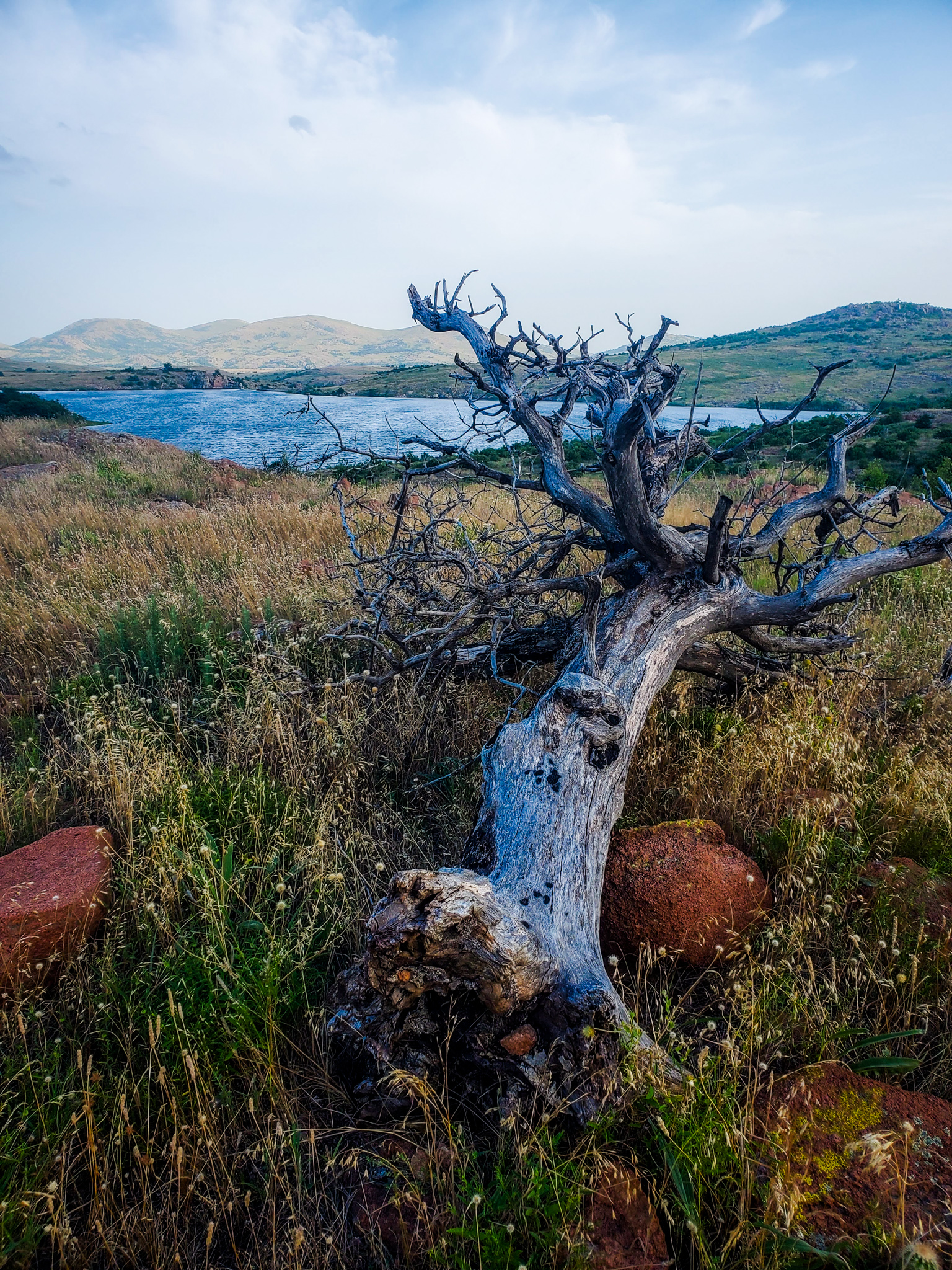
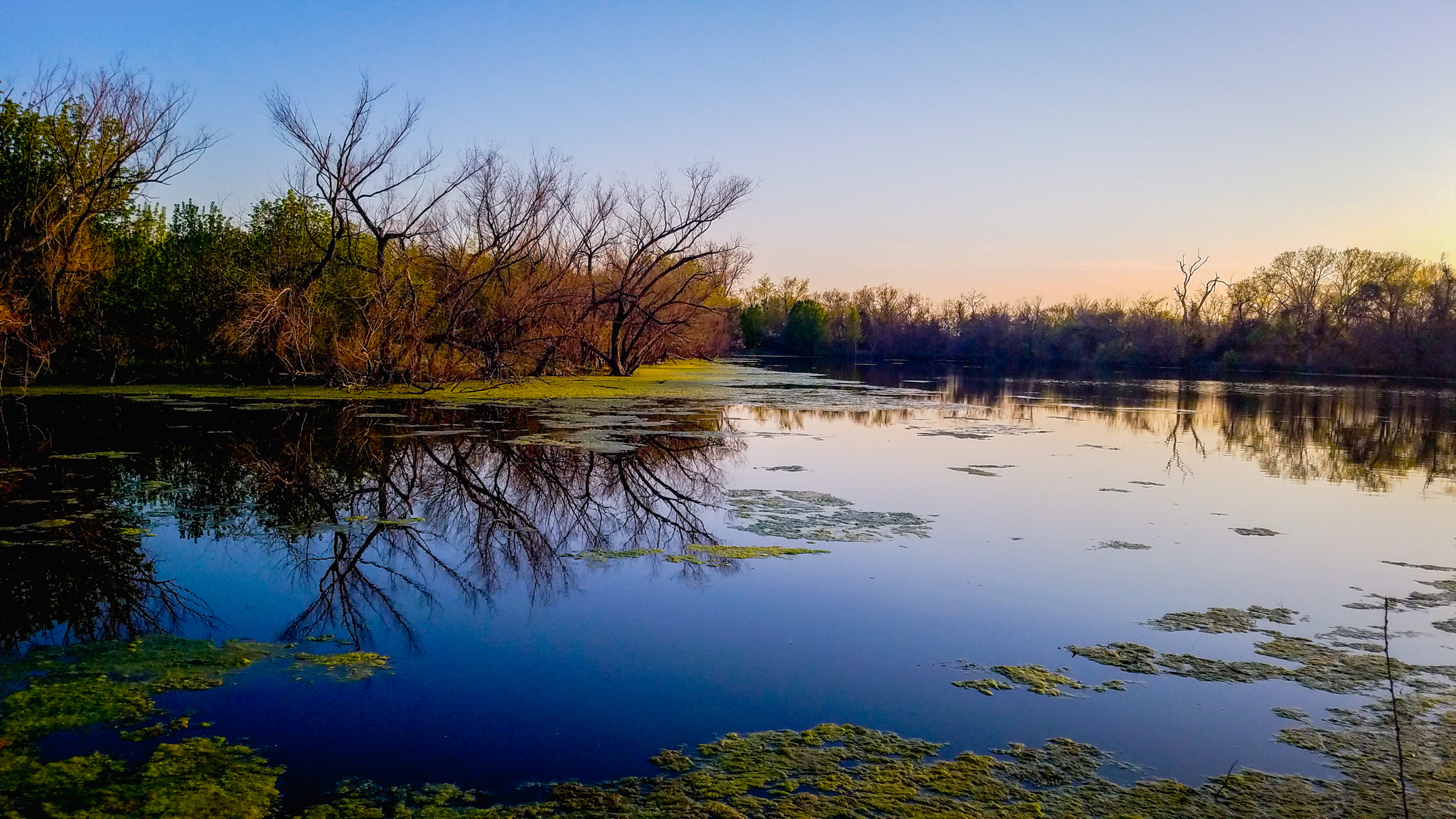
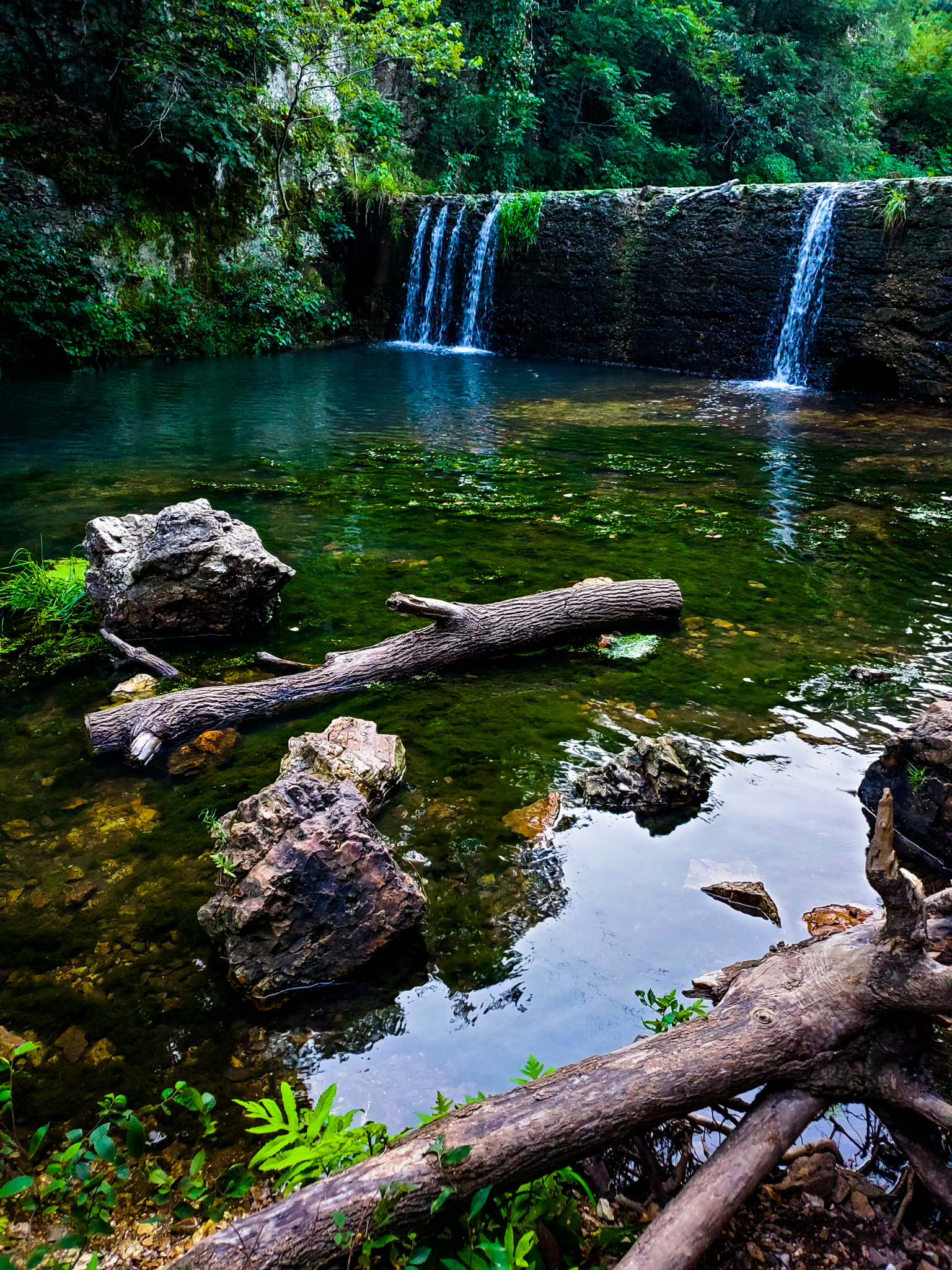
Evaluating the Impacts of Potential Wastewater Reuse on Streams in the Red River Basin of Oklahoma
Primary Investigator: Jason Vogel (University of Oklahoma)
Funded Fiscal Year: 2021
Status: In Progress
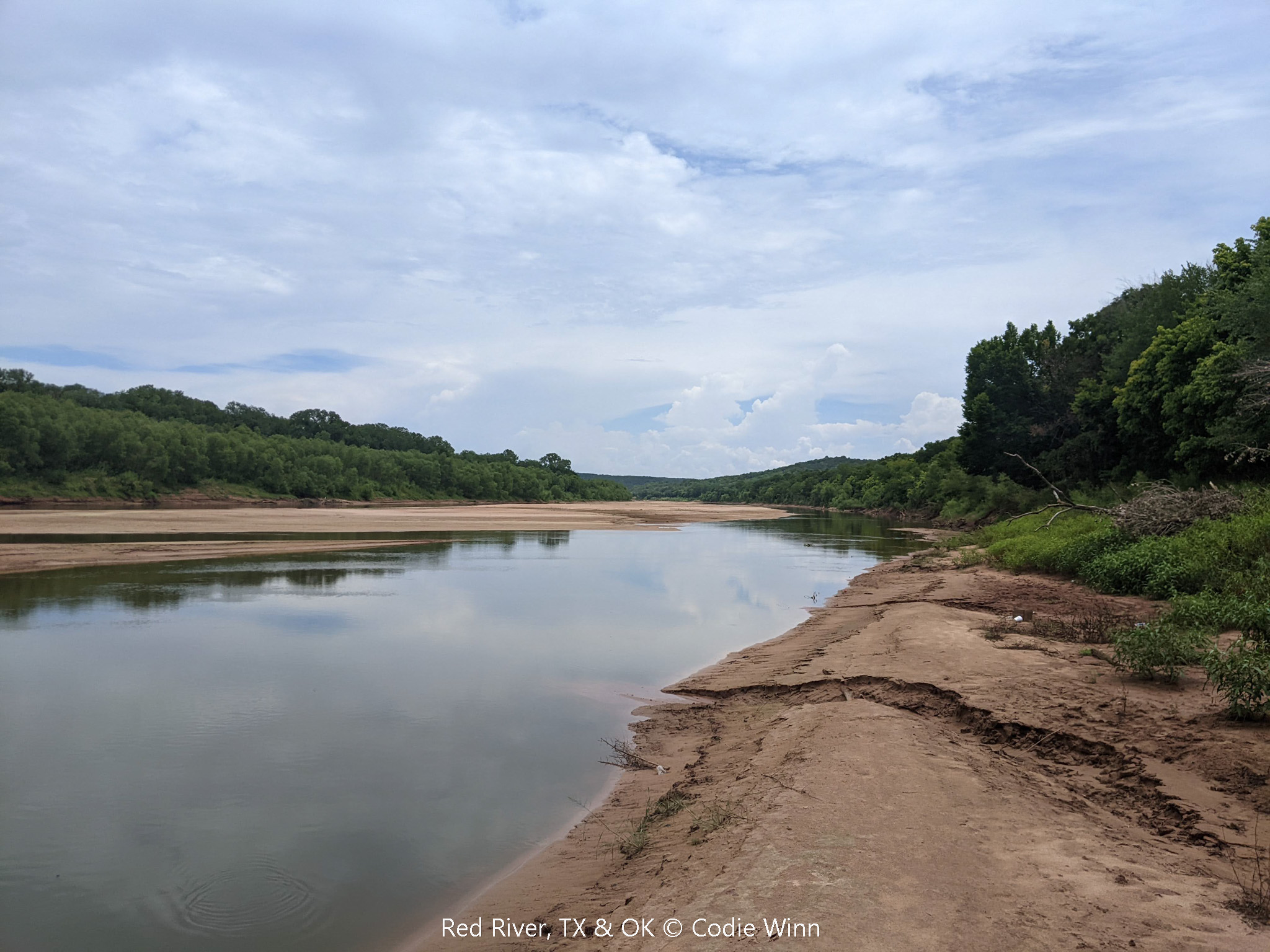
Climate change impacts and increased water demands are causing water resource managers to evaluate and implement alternative solutions to managing water availability. The capture and reuse of wastewater is a strategy to consider increasing water availability, although there are components that need evaluation. Wastewater is a beneficial component to stream flows in some locations, transforming it for local water availability could have negative impacts on downstream ecosystems. Also, the costs and benefits are poorly quantified. Assessing the changes to wastewater discharges as it relates to in-stream flows and downstream beneficial uses is critical before statewide implementation of water reuse.
This project will identify locations where wastewater reuse may offer high societal benefits with few negative impacts on downstream ecosystems. Outcomes of this project include the evaluation of sub-basins within the Red River basin for prioritization of wastewater reuse implementation and potential ecological outcomes based on wastewater reuse scenarios due to changes in water quality and in-stream flows.
Building Tools to Assess Climate Change Impacts on Water Resources of the Canadian River Basin
Primary Investigator: Newakis Weber (Chickasaw Nation)
Funded Fiscal Year: 2020
Status: In Progress
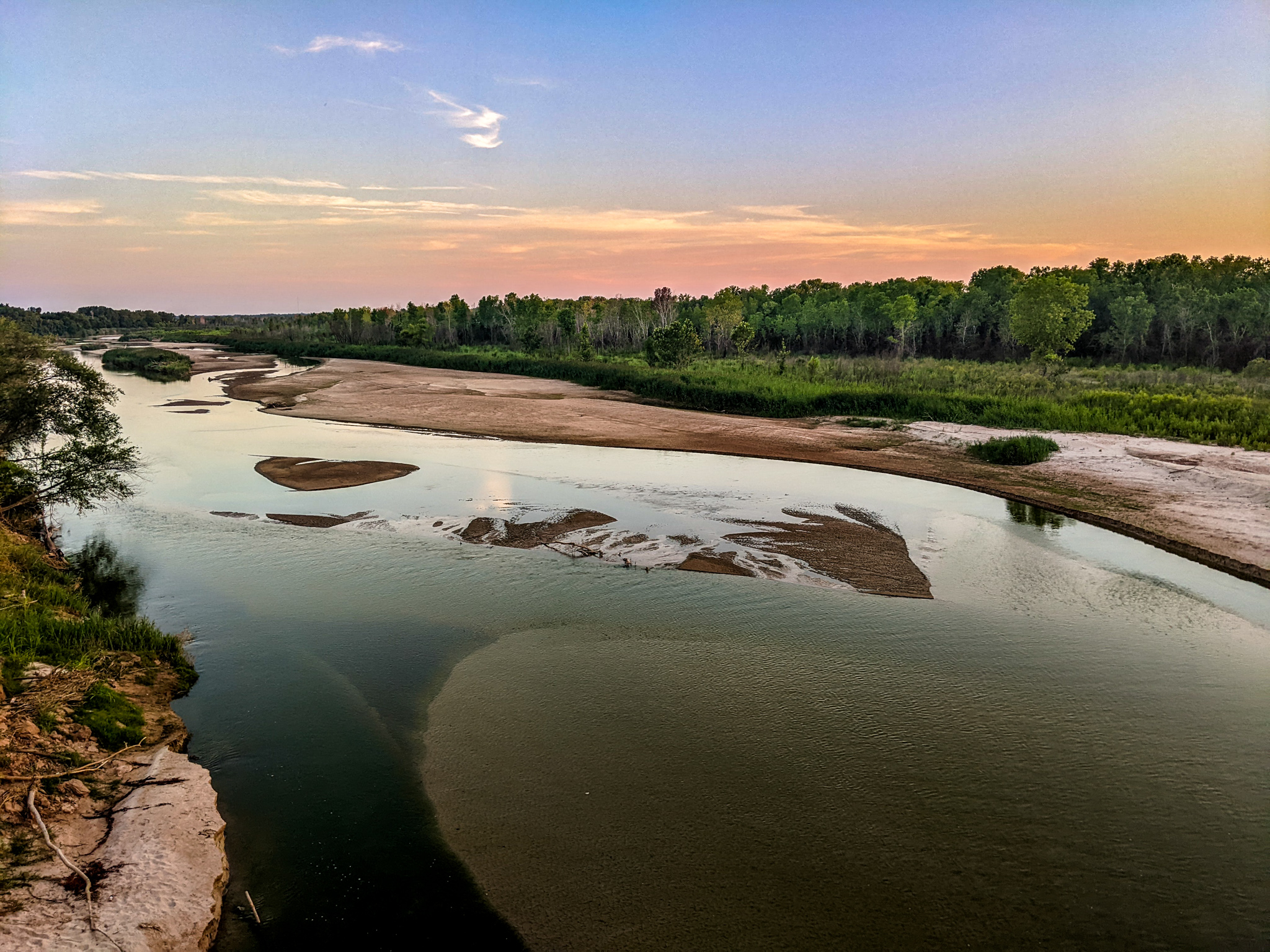
The Chickasaw Nation and the Choctaw Nation of Oklahoma have and are conducting assessments on the Red River Basin and the impacts of climate change on its flows and identifying the communities that could be most affected. This information assists them in prioritizing mitigation and adaptation activities. These assessments do not involve the Chickasaw Nation’s jurisdictional area within the Canadian and Arkansas River Basins.
Building upon these projects, this project will create hydraulic models containing various climate change projections to generate a range of plausible future river flows. The team aims to estimate natural flows for a water availability model which will produce realistic flows across climate change scenarios. They will produce a riverWare model for water planners to study water needs and identify vulnerable communities in the Canadian and Arkansas River Basin at a scale relevant to local decision-makers.
Research Symposium: Culturally Significant Plants and Climate Change
Primary Investigator: April Taylor (Chickasaw Nation)
Funded Fiscal Year: 2019
Status: Complete

Droughts, floods, and changes in the timing of frost, among other events, are stressing vegetation across the U.S. Culturally significant plants, essential to many tribal members’ way of life, are on the decline or gone. There is a need to identify the species of most concern, how climate change impacts them, and if any potential planning or adaptation tools could be applicable. The Chickasaw Nation organized and led a research symposium to address these concerns. The attendees consisted of tribes and interdisciplinary researchers from across the U.S. Together, they learned from each other on these issues and identified areas of collaboration.
Research Symposium Presented by The Chickasaw Nation, March 22-24, 2022, Sulphur, OK
Evaluation of Sustainable Water Availability in Drought Prone Watersheds in Southeastern Oklahoma
Primary Investigator: Wayne Kellogg (The Chickasaw Nation)
Funded Fiscal Year: 2017
Status: Completed
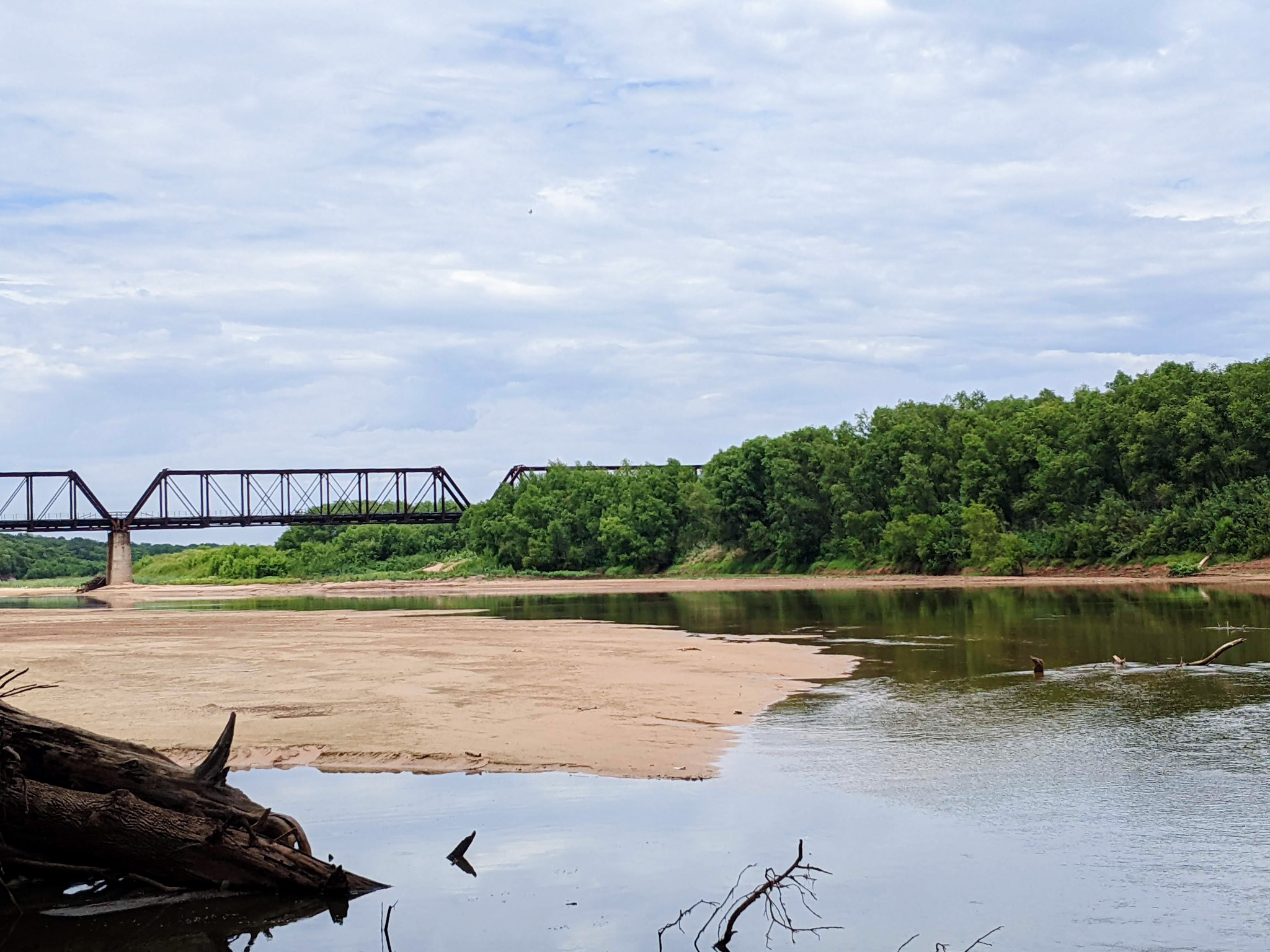
During the severe drought of 2010-2015, several communities in southeast Oklahoma almost ran out of water. Some of these communities rely on streams and rivers as their sole source of water and when these sources almost ran dry, it left them searching for alternatives and wondering how to continue growing, economically, with this water uncertainty. The possibility of climate change has these communities further concerned, primarily because they do not know what to expect. Previously, the USGS, both Chickasaw and Choctaw Nations collaborated on a project to apply a range of possible climate change scenarios to the Red River watershed to determine future water availability. This study will focus specifically on southeast Oklahoma, refining existing numerical models and identifying specific communities and water bodies most at risk.
Other webinars of interest to Oklahoma:
January 29, 2020 – Towards Sustainable Water Management: Identifying Conservation Priorities, Data Needs and Barriers to Implementing Environmental Flows in the Red River Basin by Sean Wineland, University of Oklahoma.
February 12, 2020 – New Insights into the Complex Drivers of Hydrometeorological and Hydroclimatological Extremes in the Great Plains of the United States by Dr. Jeff Basara, University of Oklahoma.
August 14, 2019 – Regional Climate and Soil Health Management: Delivering Science-based Climate Services at the USDA Southern Plains Climate Hub by Caitlin Rottler, USDA Southern Plains Climate Hub
October 9, 2019 – Whither the 100th Meridian? The Once and Future Physical and Human Geography of America’s Arid-Humidity Divide by Richard Seager, Columbia University
December 4, 2019 – The Conservation Conundrum of Grassland Ecosystems in a Changing World by Sam Fuhlendorf, Oklahoma State University